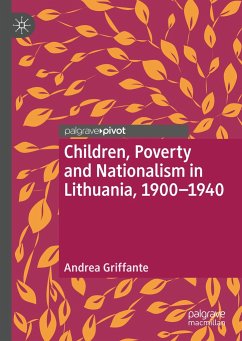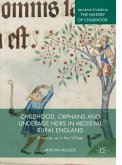This book discusses the emergence of care for orphaned, abandoned and poor children in Lithuania from the early twentieth century to the beginning of the Second World War. In particular, it focuses on how such practices were influenced by nationalist and political discourses, and how orphanages became privileged institutions for nation building. Emerging during the humanitarian crisis following the First World War, the Lithuanian orphaned and destitute children's assistance network had an eminently ethno-national character, and existed in parallel with, and was challenged by, Polish poor child assistance institutions. By analysing such care for children, this book explores concepts such as the nation state and citizenship, as well as the connections between poverty, childhood and nationalism.
"This book is a welcome addition to the history of childhood, nationalism, and charitable organizations. The text is separated into chapters tackling concise eras and offering a fresh comparison with other similar European movements. ... this book is an important contribution to the history of childhood and youth in understanding and contextualizing both local and regional differences, but also showing how the rise in influence of political movements can affect the provision of aid to children in need." (Aisling Shalvey, The Journal of the History of Childhood and Youth, Vol. 16 (3), 2023)








